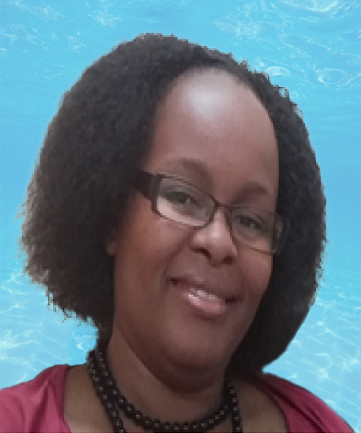Victoria H. Moshy Profile
 Victoria H. Moshy is a Lecturer at the Institute of Resource Assessment (IRA)and the Centre for Climate Change Studies (CCCS), University of Dar es Salaam. She holds a PhD in Environment and Development Studies from the Norwegian University of Life Sciences and a Master of Arts degree in Geography and Environmental Studies from the University of Dar es Salaam. Her areas of academic and research interest are on human-environment interactions, focusing on the social aspects of social-ecological resilience, gender issues and sustainable community development. The core of her research focuses on livelihood resilience in marginalized communities, particularly in coastal and agro-pastoral communities, in the context of the changing social-ecological and climatic conditions. Dr. Moshy has a particular interest in Traditional Ecological Knowledge (TEK), which is embedded in the lives of men and women in marginal areas and forms a basis for understanding both the changes and gendered responses to cope or adapt to the changes in order to enhance social-ecological resilience.
Victoria H. Moshy is a Lecturer at the Institute of Resource Assessment (IRA)and the Centre for Climate Change Studies (CCCS), University of Dar es Salaam. She holds a PhD in Environment and Development Studies from the Norwegian University of Life Sciences and a Master of Arts degree in Geography and Environmental Studies from the University of Dar es Salaam. Her areas of academic and research interest are on human-environment interactions, focusing on the social aspects of social-ecological resilience, gender issues and sustainable community development. The core of her research focuses on livelihood resilience in marginalized communities, particularly in coastal and agro-pastoral communities, in the context of the changing social-ecological and climatic conditions. Dr. Moshy has a particular interest in Traditional Ecological Knowledge (TEK), which is embedded in the lives of men and women in marginal areas and forms a basis for understanding both the changes and gendered responses to cope or adapt to the changes in order to enhance social-ecological resilience.
Work under SAMAKI project: Gendered Engagement on Anchovy Value Chain and its implication on Coastal Livelihood Resilience in Zanzibar and Tanga, Tanzania
Project Summary
This study aims to understand the various gender relations, roles, and norms in the anchovy fisheries value chain and their implication for livelihood resilience among coastal communities in Tanga and Zanzibar. In particular, the study intends to explore the gendered contribution to the fisheries sector, focusing on women's contributions in the fisheries value chain. Despite their contribution to this livelihood-sustaining sector, women’s contributions are less valued and poorly documented. Governance and most past policies are linked to the opinion that men take part in the actual capturing of fish while women participate in the pre and post-harvest activities such as net mending, processing and marketing. However, women’s roles are complex and dynamic throughout the whole fisheries value chain, but have remained somewhat invisible to researchers and policymakers. In addition, coastal livelihoods, including those related to small-scale pelagic fishery, are vulnerable to climate change and variability challenges. For livelihoods to be sustainable they should be resilient enough to manage the changes and respond and recover positively during the time of need. Since the impact of such changes affects coastal livelihoods, the study investigates the varied gender realities in the dynamic Anchovy fisheries value chain, and the gendered efforts to enhance livelihood resilience.
